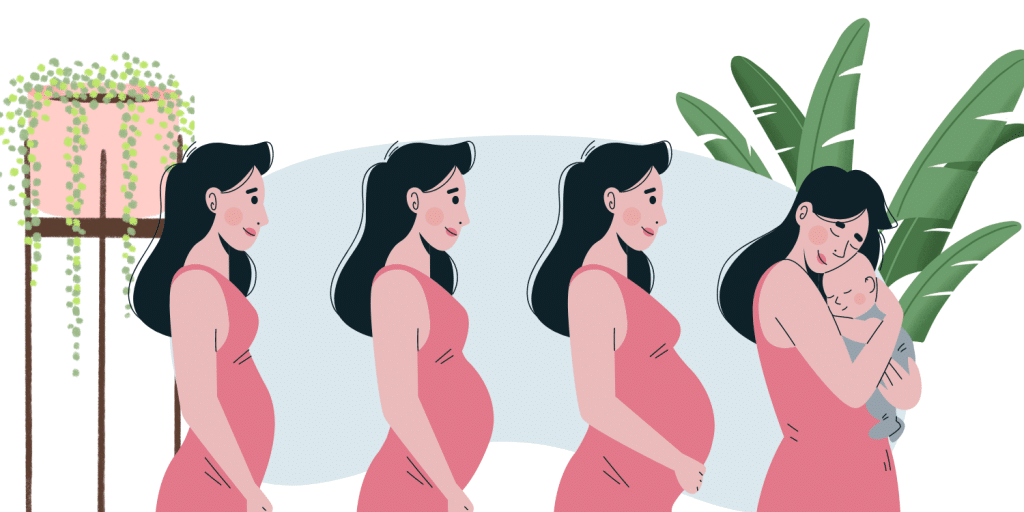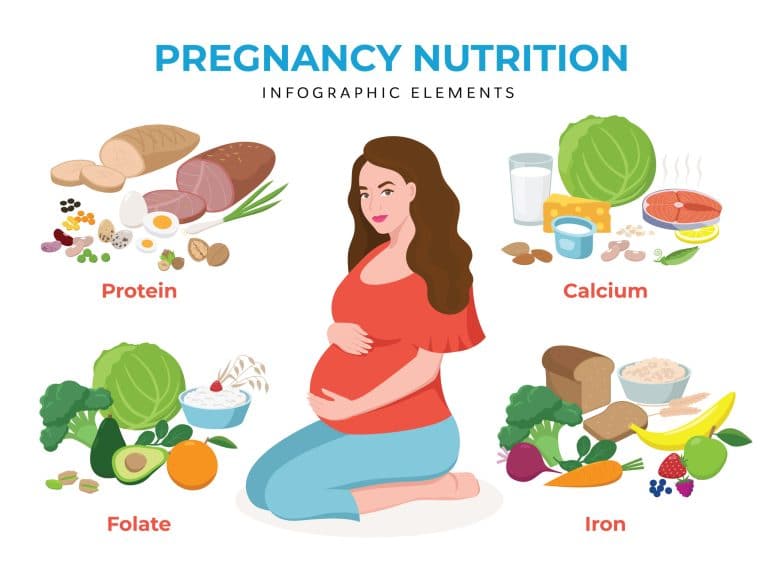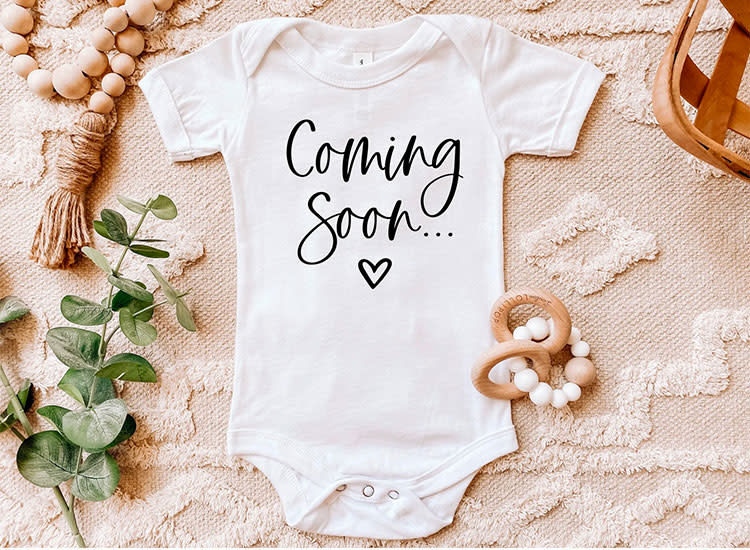Our pregnancy due date calculator takes the guesswork out! Simply enter your last period’s first day (or conception date, if known), and we’ll estimate your baby’s big debut. Remember, this is just an estimate, but it’s a fun way to start planning and preparing!
Wondering when your little one will arrive?
Our easy-to-use Pregnancy Due Date Calculator is here to provide an estimated due date (EDD) and guide you through your pregnancy journey week-by-week.
With each passing day, expectant mothers are filled with curiosity and wonder about their developing baby and the transformations within their own bodies. Our calculator is designed to answer a pivotal question: “When is my baby due?”
Step-by-step Instructions on How to Use the Calculator

Just enter the first day of your last menstrual period and the typical length of your menstrual cycle.
Our calculator will estimate your conception date, confirm your due date, and break your pregnancy down week-by-week so you know what to expect during each trimester.
Pregnancy Due Date Calculator – Your Questions Answered
What Does the First Day of Your Last Period Mean?
The first day of your last period, referred to as the first day of your last menstrual period (LMP), is the first day you bled during your most recent menstrual cycle. This date signals the start of your menstrual cycle, about two weeks before you actually ovulate and become pregnant.
Why Does the Due Date Matter?
Knowing your due date helps you plan for delivery and focus prenatal care around significant milestones. Most healthcare providers will use your due date to plan important tests and track the baby’s growth.
How Do I Calculate the Last Day of My Period?
Calculating the last day of your most recent menstrual period is very simple once you know the first day your period started and the typical length of your cycle. Here are step-by-step instructions:
- Mark the first day of bleeding for your most recent period. This is considered Day 1.
- Determine the regular length of your menstrual cycle. The length of a cycle is measured from the first day of one period to the first day of the next. For example, if your periods usually start every 28 days, you have a 28-day cycle.
- Count ahead the number of days in your cycle from the first day of your last period. If you have a 28-day cycle, you would count ahead 28 days.
- The day before your next period starts is considered the last day of your prior period.
Why Does the Due Date Matter?
Knowing your due date helps you plan for delivery and focus prenatal care around significant milestones. Most healthcare providers will use your due date to plan important tests and track the baby’s growth.
How Accurate is Our Pregnancy Due Date Calculator?
Our calculator provides an estimate based on the information you provide: the start date of your last menstrual period (LMP) and the average length of your menstrual cycle. Most full-term babies are delivered within a week on either side of the estimated due date.
How Will I Know the Date I Got Pregnant?
Our pregnancy due date calculator provides an estimate of the date you likely got pregnant – which is known as your estimated date of conception.
It calculates this conception date based on the details you provide about your last menstrual period start date and average menstrual cycle length.
While it won’t pinpoint the exact hour conception happened, our due date calculator’s estimated date of conception can give you a good approximation to start tracking those early days and weeks of your pregnancy from just before that crucial egg and sperm met to start your amazing pregnancy journey!








